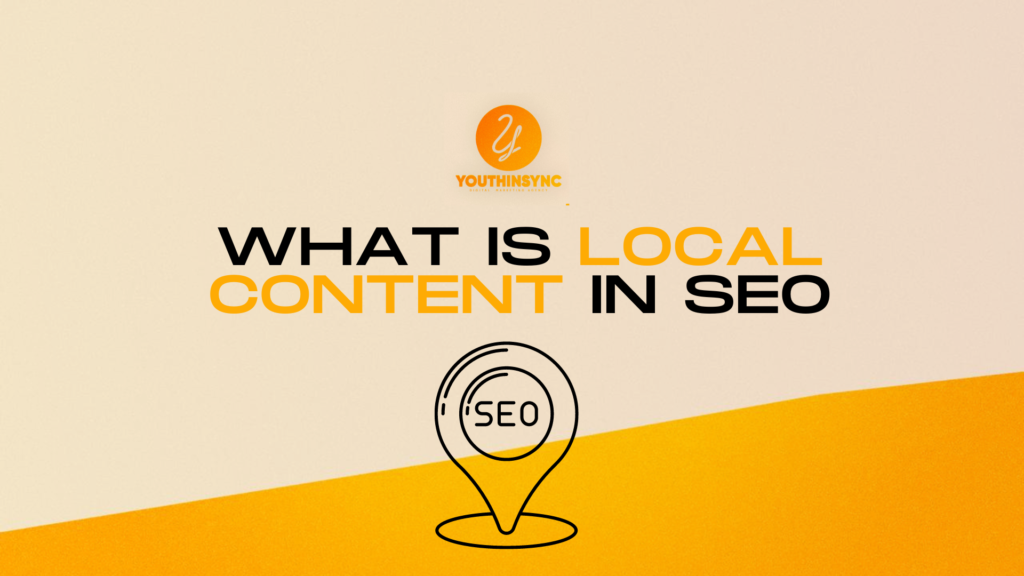What is Local Content in SEO? A Comprehensive Guide to Boosting Local Search Rankings
Introduction In the world of digital marketing, Local SEO has emerged as a critical strategy for businesses aiming to connect with potential customers in specific geographic locations. But what exactly is local content, and how does it fit into your broader SEO efforts? Local content refers to any digital material—whether it’s blog posts, location-based pages, customer testimonials, or social media updates—crafted with the intention of engaging a local audience. This type of content is pivotal in driving local search rankings, ensuring that your business is visible when users in your area search for the services or products you offer. Local content is more than just mentioning a city or neighborhood; it’s about creating value for your community, establishing trust, and becoming a go-to resource for your local audience. As search engines like Google continue to prioritize user experience, the relevance and quality of local content have become key factors in determining search rankings. Why Local Content Matters Impact on Local Search Rankings Google’s algorithms are designed to deliver the most relevant content to users, and local content plays a significant role in this process. When you create content that is specifically tailored to your local audience, you increase the chances of your website appearing in local search results. For instance, if you own a coffee shop in Austin, Texas, and your content is optimized with keywords like “best coffee shop in Austin,” your site is more likely to appear when someone in Austin searches for a coffee shop. Local content not only improves visibility but also enhances your authority in your specific market. By consistently producing high-quality, locally-focused content, you signal to Google that your business is an expert in its area, which can further boost your rankings. Enhancing User Experience Beyond just rankings, the ultimate goal of local content is to enhance the user experience. When users find content that is relevant and helpful to their specific needs, they are more likely to engage with your website, stay longer, and ultimately convert into customers. For example, a blog post about upcoming local events not only attracts traffic but also serves as a valuable resource for your community. This focus on user experience is crucial because it aligns with Google’s mission to provide the best possible answers to users’ queries. When your content is both relevant and valuable, it reduces bounce rates, increases time spent on the page, and boosts overall user satisfaction—all factors that contribute to higher search rankings. Building Community Trust Trust is a cornerstone of any successful business, and local content is an effective way to build that trust within your community. By producing content that resonates with local audiences—such as customer testimonials, case studies, or even local news updates—you create a connection with your audience that goes beyond just selling a product or service. For example, highlighting a case study from a local client or featuring testimonials from satisfied customers in your area can significantly boost your credibility. Google also takes user reviews and engagement into account when ranking businesses locally, so a strong connection with your community can directly impact your search rankings. Types of Local Content Location-Based Pages One of the most effective forms of local content is the creation of location-based pages. These pages are tailored to specific geographic areas, such as cities, neighborhoods, or even regions where your business operates. Each page should include localized keywords, addresses, phone numbers, and other relevant information that speaks directly to the needs of customers in that area. For instance, if you operate a chain of dental clinics, creating separate pages for each location with content that highlights local services, patient reviews, and community involvement can drive significant local traffic. Moreover, these pages can be optimized with local schema markup to improve their visibility in search results, particularly in Google’s Local Pack. Local News and Events Incorporating local news and events into your content strategy is another powerful way to engage your community and improve your local search rankings. This type of content could include blog posts about upcoming community events, news about local sponsorships, or even updates on issues that affect your local area. For example, a real estate agency might publish articles about local housing market trends, upcoming neighborhood events, or tips for first-time homebuyers in specific areas. This not only helps to attract traffic but also positions the agency as a valuable resource for local residents. Customer Testimonials and Case Studies User-generated content, such as customer testimonials and case studies, is invaluable for building trust and improving local SEO. These stories provide potential customers with real-life examples of how your business has positively impacted others in the community. For instance, if you run a home improvement business, a case study detailing a recent project in a specific neighborhood, complete with before-and-after photos, can be highly persuasive. Not only does this showcase your expertise, but it also creates content that is highly relevant to local search queries. Localized Blog Posts Localized blog posts are an excellent way to connect with your community on a deeper level. These posts can cover a wide range of topics, from local business guides and community profiles to tips on navigating local regulations or participating in local events. For example, a local law firm might publish articles on topics such as “Understanding Zoning Laws in [City Name]” or “How to File a Small Claims Case in [County Name].” These posts provide valuable information that is directly relevant to your audience, helping to establish your business as a local authority. How to Create Effective Local Content Keyword Research for Local SEO Effective local content starts with thorough keyword research. Identifying the right keywords is essential for ensuring that your content reaches the intended audience. Tools like Google Keyword Planner, Ahrefs, and Moz can help you identify local keywords that are both relevant and have
What is Local Content in SEO? A Comprehensive Guide to Boosting Local Search Rankings Read More »

